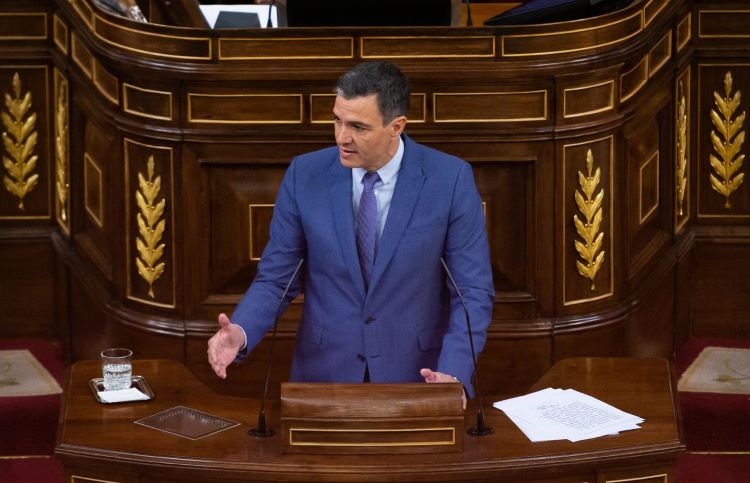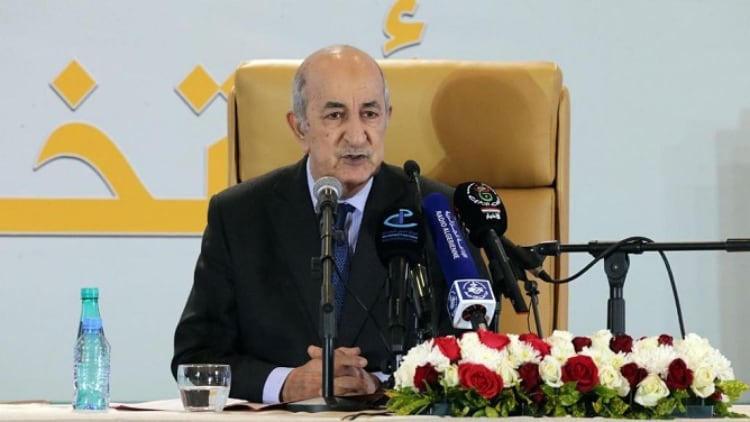Eduardo González
The President of the Government, Pedro Sánchez, assured yesterday in the Congress that the Joint Declaration signed on April 7 by Spain and Morocco means “a system of guarantees for the territorial integrity” and, therefore, for the Spanish sovereignty over Ceuta and Melilla, which “is beyond any doubt”.
“On the occasion of my trip to Morocco at the invitation of King Mohamed VI last April 7, the Governments of Spain and Morocco substantiated the will for a new framework of understanding and stability, by adopting a Joint Declaration”, said Sánchez during his appearance before the Plenary of the Lower House.
The Declaration, he continued, “builds a system of guarantees, to begin with on our territorial integrity”. “I said it before King Mohamed VI, and also in my appearance in Morocco, and I repeat it here today: Spanish sovereignty over Ceuta and Melilla is beyond doubt, as in any other part of the national territory,” he said. “We do not accept to speak of Ceuta and Melilla as occupied cities, because they are Spanish territory, they are internationally recognized European territory. This is what I wanted to emphasize with my visit to both cities,” he added.
“Good neighborliness must also imply a model of normality beneficial to all”, because “the two autonomous cities cannot live and develop under the pressure of permanent exceptionality and precariousness”, said the head of the Executive. Therefore, he warned, it is necessary to “fully normalize the passage of people and goods”.
“Right after signing the Joint Declaration, both parties agreed on the immediate restoration of all maritime connections, the gradual opening of border crossings and the preparation of the operation Paso del Estrecho”, assured Pedro Sanchez. “I also said in my meeting with King Mohamed VI of Morocco that we agree that customs in Ceuta and Melilla should operate under a commercial expedition regime,” he added. “What the public authorities on both sides of the border are going to do is simply to ensure that legality is complied with and that we have the necessary customs instruments to properly regulate the normal traffic of people and goods,” he added.
The Spanish and Moroccan delegations held last Tuesday in Madrid the first negotiation on the next customs regime in Ceuta and Melilla, which concluded without immediate results and will be resumed “in the coming days in Morocco”. The meeting took place a few days after the general director of Customs of Morocco, Nabyl Lakhdar, assured in an interview that, at the moment, there are not “the right geographical conditions” for the installation of customs in the border crossings of Ceuta and Melilla. The roadmap agreed between Sanchez and Mohamed VI – included in the Joint Declaration – assures that “the full normalization of the movement of people and goods will be restored in an orderly manner, including the appropriate customs and people control devices at land and sea level”. Melilla customs was unilaterally closed by Morocco in August 2018 after a century and a half of operation and Ceuta has never had customs. The creation of customs could imply – as Moncloa wishes and Moroccan diplomacy fears – the implicit recognition of Spanish sovereignty over the two autonomous cities.
During his intervention before the Congress, Pedro Sanchez again defended his government’s about-face on the Saharawi conflict (which has allowed ending the diplomatic crisis with Morocco and initiating the “new stage” in bilateral relations) with his already well-known argument (expressed in mid-April in a letter to Mohamed VI) that the Moroccan proposal of autonomy for Western Sahara is “the most serious, credible and realistic basis”. “We respect that others may think otherwise, but we would all be fooling ourselves in this House if we did not recognize something that may seem obvious: a conflict that has been going on for too long must be resolved,” he added.
Cuca Gamarra and Pablo Echenique
During her reply, the PP spokeswoman in Congress, Cuca Gamarra, assured that the Government “has neither the support nor the mandate to change Spanish foreign policy” in relation to the Saharawi issue and demanded that it “return to the UN framework, which it should never have abandoned, of support for a negotiated solution between the parties” and of “active neutrality” on Western Sahara.
“To this day, we still do not know who negotiated the famous letter and who took it to the palace to King Mohamed VI,” he lamented. “Neither has he clarified whether this is related to the Pegasus spying and what files were taken from his cell phone,” continued Gamarra, who also asked Sanchez what good his “lurch” on the Saharawi issue has done him when “the commercial customs of Ceuta has not yet been created and that of Melilla is still closed,” which is “a failure, his failure.”
For his part, the spokesman of Unidas Podemos (minority partner of the coalition government), Pablo Echenique, accused Sanchez of having gone out of international legality with his change of course on Western Sahara and defended the right of self-determination of the Saharawi people. “Morocco is an aggressor power and Sahara is the assaulted people”, he warned.






